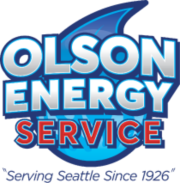-
What Homeowners Need to Know About Geothermal Heat Pumps
If you’re looking to keep your energy costs down in your household this year, you may want to think about installing a heat pump . Obtaining a home energy audit from an HVAC contractor in Seattle can help you determine whether this is a worthwhile investment for you. Geothermal heat pumps are a popular option for cold climates. If you’re interested in learning how these devices work, keep reading.
What are geothermal heat pumps?
A heat pump is a heating system that works by transferring heat out of one space and into another—for example, from the air outside your home to the air inside. Geothermal heat pumps work by transferring heat to or from an area a few feet under the ground, which stays at a steady temperature throughout the year. As with other heat pumps, these systems can be used to either heat or cool the air inside your home, and they can also be used to heat water.
What are the different types of geothermal heat pumps?
There are two distinct types of geothermal heat pumps used in homes: Closed loop and open loop systems. Open loop systems rely on groundwater to exchange heat, while closed loop systems can use either vertical or horizontal installations or rely on a nearby lake or pond for heat exchanges. When you talk to a contractor about installing your heat pump, he or she will inspect your property and advise you which option is best suited to your needs.
What are the advantages of geothermal heat pumps?
Since the temperature of the ground doesn’t change from one season to the next, geothermal heat pumps are much more efficient than heat pumps that rely on air. They are highly eco-friendly, since they don’t produce any emissions or have any noticeable impact on the environment. Geothermal heat pumps also require little maintenance once they’ve been installed, and they are quiet and unobtrusive.
““
-
Ductless Heat Pumps 101
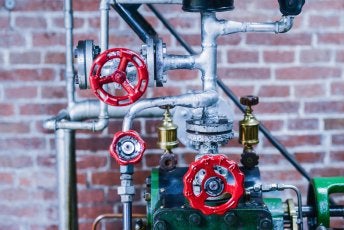
Ductless systems are fast becoming one of the most popular methods of heating and cooling modern homes, and it’s not hard to see why. Compared to traditional central HVAC systems, ductless heating and cooling systems are versatile, efficient, and cost-effective. If you’re considering adding a ductless heat pump to your Seattle home, here’s what you should know.
Ductless systems are effective heaters.
A ductless heat pump works by using a system not unlike the one that powers your refrigerator. The pump uses a compressor to transfer heat from outside into your living space, where the degree of heat you get can be controlled using a remote control. It’s a simple process that results in reliable, consistent heating. Ductless heat pumps are extremely quiet to operate, and they are also much less expensive to use than furnaces.
Ductless systems are highly efficient.
If you’re looking to cut back on your energy usage, a ductless system is a great option for home heating. With a ductless heat pump, you can heat every space by only as much as it needs and avoid unnecessary energy use. HVAC systems with ducts also tend to lose a lot of heat during the process of distributing it throughout your home, which isn’t an issue with a ductless system.
Ductless systems can be used anywhere.
One of the chief advantages of ductless heat pumps is their sheer versatility—they can be used to heat virtually any type of home space, whatever its size. Unlike other heating systems, they don’t require you to install any pipes or other room additions. If you’re ready to retire your outdated, inefficient central heating system, a ductless heat pump is a terrific option. You can also use ductless heat pumps to complement your existing system if you have a space that you’re having trouble heating.
-
An Inside Look at Geothermal Heat Pumps
As the world continues shifting toward more sustainable and efficient energy sources, heating and cooling options have expanded to include geothermal heating and cooling. This technology harnesses the earth’s heat energy to keep homes and businesses comfortable all year round. Explore the ins and outs of geothermal heating, the mechanisms behind geothermal heat pumps, their benefits, and other considerations.
What is Geothermal Heating?
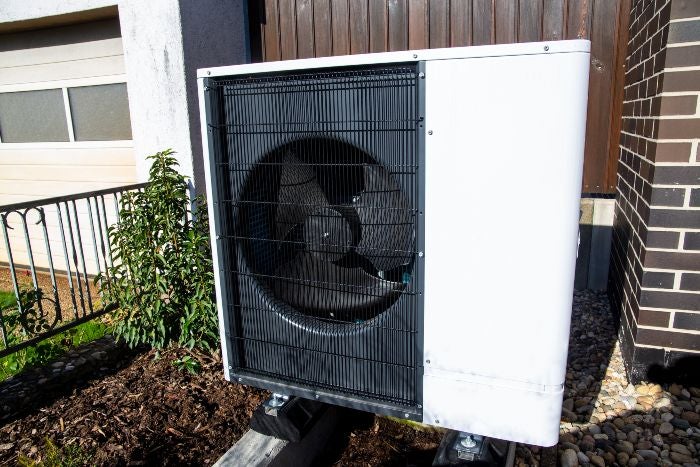
Geothermal heating is an energy-efficient climate control method that taps into the constant thermal energy stored beneath the earth’s surface. This form of heating is seen as a green alternative to traditional methods because it substantially reduces the reliance on fossil fuels and decreases greenhouse gas emissions.
While the ground near the surface fluctuates almost as much as the air temperature, the soil below the frost line maintains a steady temperature of 45 to 75 degrees. This heat source remains consistent despite seasonal changes, making it a reliable option for both heating and cooling.How Do Geothermal Heat Pumps Work?
Are you familiar with air-source heat pumps? These AC-like systems move heat between the indoor and outdoor air for high-efficiency heating and cooling. Geothermal or ground-source heat pumps are similar, but they exchange heat between the earth and the buildings they serve.
A series of underground pipes, known as a ground loop, comprises the heart of geothermal heating and cooling. Ground loop systems come in two forms: open loop and closed loop. Open loop systems utilize well water, a pond, or a lake for direct heat exchange. In this case, the ground loop is filled with water.
Closed loop systems absorb or disperse heat directly to the earth, offering versatility and environmental safety but requiring a larger installation area. In this case, the ground loop contains a mixture of water and antifreeze as the heat-transfer fluid.
In heating mode, the fluid circulating through the pipes absorbs heat from the ground and carries it to the heat pump unit. There, the heat is concentrated and transferred to the air circulating through the building’s ductwork, thus heating the interior.
During the cooling process, the heat pump absorbs heat from the indoor air and transfers it into the ground via the loop system, thereby cooling the building. Transitioning between heating and cooling modes is seamless and can be controlled at the thermostat.
Pros and Cons of Geothermal Heat Pumps
Like all heating and cooling systems, geothermal heat pumps have benefits and challenges. Here’s a breakdown of each:
Pros
- Energy efficiency: Geothermal heat pumps are incredibly efficient. They can deliver three to five units of heat for every unit of electricity they use, making them 300 to 500 percent efficient. This incredible performance is possible because the heat pump transfers heat rather than creating it, a critical difference from conventional heating systems.
- Cost savings: Higher efficiency amounts to significant utility savings over the long term, making geothermal heat pumps a cost-effective investment.
- Environmental benefits: By leveraging renewable energy from the earth, these systems reduce dependence on fossil fuels and produce fewer greenhouse gas emissions.
- Durability and reliability: Geothermal systems have few moving parts, leading to a longer lifespan and lower maintenance needs than conventional systems. The indoor components typically last about 25 years, and the ground loop can last over 50 years.
Cons
- High initial investment: Geothermal heat pumps cost significantly more than traditional HVAC systems, largely due to the ground loop portion. However, federal, state, and local incentives help offset the upfront cost.
- Site-specific considerations: Installation is challenging, sometimes impossible, on smaller properties or areas with difficult ground conditions. A thorough site evaluation is essential before installation.
- Electricity use: While efficient, geothermal systems still run on electricity, so they aren’t carbon neutral unless powered by renewably sourced electricity.
- Professional installation and maintenance required: Due to their complexity, geothermal systems must be professionally installed and maintained. And since geothermal heat pumps are less common, finding a qualified installer may be difficult.
Trust Olson Energy Service for Your Geothermal Needs
With nearly a century of service in the Seattle area, Olson Energy Service takes pride in delivering energy-efficient heating and cooling solutions to our customers. Our mission has always been centered on serving the community with integrity and expertise. We’ll work hard to provide a system that meets your unique needs, enhances comfort, and contributes to a healthier planet. If you’re considering the switch to a geothermal heat pump or need other HVAC services in Seattle, WA, please contact us online or call us at 206.782.5522 to speak with a friendly representative today.
-
Spotlight on Duct Cleaning Services
Are you interested in increasing the quality of your home’s indoor air? If so, then consider services for air duct cleaning near Seattle. If you have central air, then your air conditioner and heater use ductwork to transport conditioned air throughout your home. Over time, buildup can occur within the ducts, or damage to their structure can allow for dirt and moisture to enter the system and lead to mold growth.
If your ducts have mold, dirt, and other debris in them, the particles and spores might be getting pushed into the rooms of your home every time that the system runs. This can lead to reduced indoor air quality caused by air pollutants and allergens.
Having an air conditioner and heater service come to clean out the ducts has the potential to increase your home’s indoor air quality. When the air in your home is cleaner, this can help keep your family healthier and reduce any symptoms that they are experiencing which are related to dust, allergen, or mold exposure. Additionally, cleaner ducts can mean better HVAC efficiency and a longer lifespan for the system.
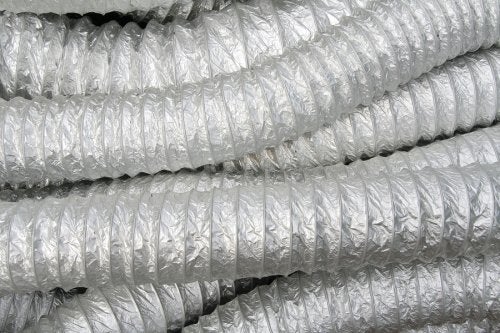
-
When to Replace Your Furnace?
Have your energy bills increased and you can’t figure out why? If so, then it may be time to look for a replacement furnace in Seattle. Just like heat pumps and air conditioners, furnaces lose their efficiency as they near the end of their lifespan. Watch this video to learn more about furnace service and when to replace your furnace .
Another sign that you may need a new unit is if you’re frequently scheduling furnace repair appointments. A furnace repair that breaks down regularly despite expert maintenance services could be on its last legs. Also, if you’re often adjusting your thermostat or if your home never gets as warm as you would like, then it’s probably time to start looking for a new furnace.
““
-
How Do Heat Pumps Work?
For many people, the first thing that comes to mind when they need to lower the temperature in their home is to turn on the AC. Many households use air conditioners to stay cool during the summer, but heat pumps near Seattle can provide the same effect while using less energy.
Heat pumps are energy-efficient heating and cooling units.
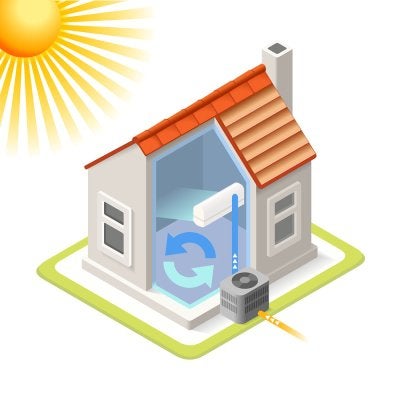 Because of their name, the average person wouldn’t expect a heat pump to have anything to do with cooling. These units can have the dual purpose of heating your home in the winter, and keeping it cool during the summer. Heat pumps are units that use a small amount of energy to move heat to a different location. These devices are ideal for use in climates that enjoy moderate temperatures without hot or cold extremes. When installed in less temperate zones, supplemental heating or air conditioning may be necessary.
Because of their name, the average person wouldn’t expect a heat pump to have anything to do with cooling. These units can have the dual purpose of heating your home in the winter, and keeping it cool during the summer. Heat pumps are units that use a small amount of energy to move heat to a different location. These devices are ideal for use in climates that enjoy moderate temperatures without hot or cold extremes. When installed in less temperate zones, supplemental heating or air conditioning may be necessary.Heat pumps rely on heat transfer to warm or cool your home.
A heat pump’s purpose is to pull heat from the air or the ground, and then move it to another location. These units use mechanical-compression style refrigeration and typically consist of two components. The indoor part, which is called the air handler, contains the blower, which moves air into your home. The outside section, which is the heat pump, resembles an air conditioning unit and is responsible for heat transfer. Heat pumps come in a variety of styles, but their basic principle for operation is heat transfer. In the case of cooling your home, the machine works by pulling warmth from inside the home and moving it outside.
Heat pumps may offer you several advantages.
Heat pumps are single unit devices that are used for both heating and cooling, often making them more convenient to install than an HVAC system. Also, because they run on electricity and do not require fuel to heat or cool a space, they are energy-efficient and can save you significantly energy costs.
-
Highlighting the Advantages of Heat Pumps
Are you considering installing a heat pump near Seattle ? A heat pump can help keep your home at a comfortable temperature all year round by warming your house in the winter and cooling it in the summer. Plus, heat pumps require less energy than other types of heating and cooling systems, meaning a heat pump can help you cut down on your energy expenses.
Heat pumps work through the use of a compressor to move heat from one area to another. In the winter, a heat pump takes heat from the outside air and pumps it into your home. In the summer, it acts as an air conditioning system by reversing this cycle.
In addition to their versatility, heat pumps have numerous other advantages. First of all, they are easier to maintain and have a longer lifespan than conventional heating and cooling systems. In addition, they transfer heat rather than generate it, reducing your energy consumption and thus your carbon footprint. Finally, heat pumps also act as dehumidifiers, making your home more comfortable in the summer without increasing your electricity bills.

RECENT POSTS
categories
- Uncategorized
- Air Conditioner
- Fireplace Inserts
- Fireplace Insert Installation
- Air Conditioning Installations
- Air Conditioning Units
- Air Conditioner Maintenance
- HVAC Professionals
- Heat Pump Installation
- Heating and Cooling
- HVAC Unit
- Heat Pumps
- Furnace
- Furnace Service
- Tankless Water Heaters
- Water Heaters
- Energy Efficiency
- HVAC Contractors
- Olson Energy Service
- Mini-Split Systems
- Ductless Air Conditioner
